
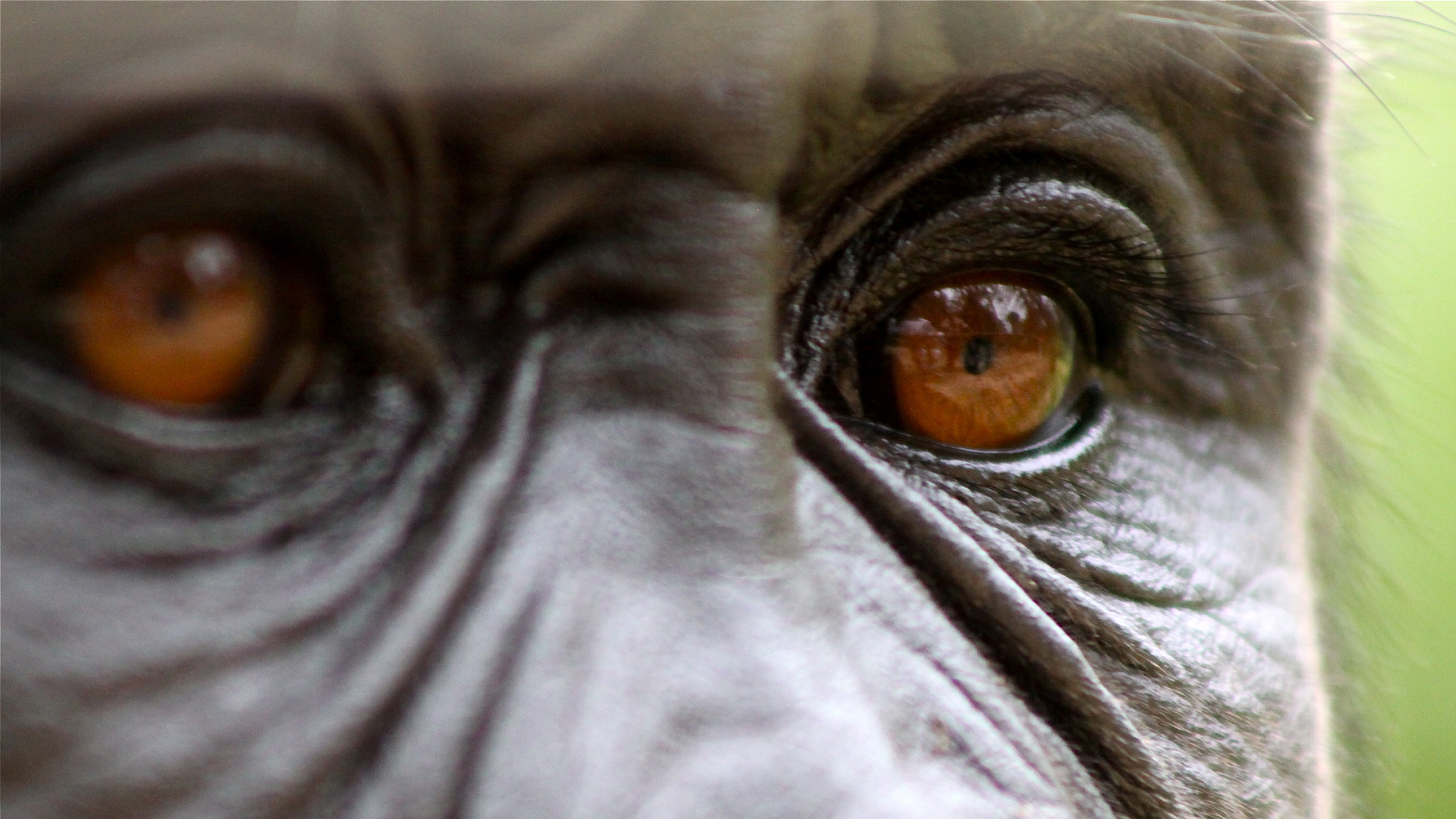
Guardians of Dja
ABOUT BORN FREE’S GUARDIANS OF DJA PROGRAMME
This programme is working to increase the abundance of rare chimpanzees and gorillas in the Dja Biosphere Reserve (DBR), Cameroon, and to foster coexistence between local people and wildlife.
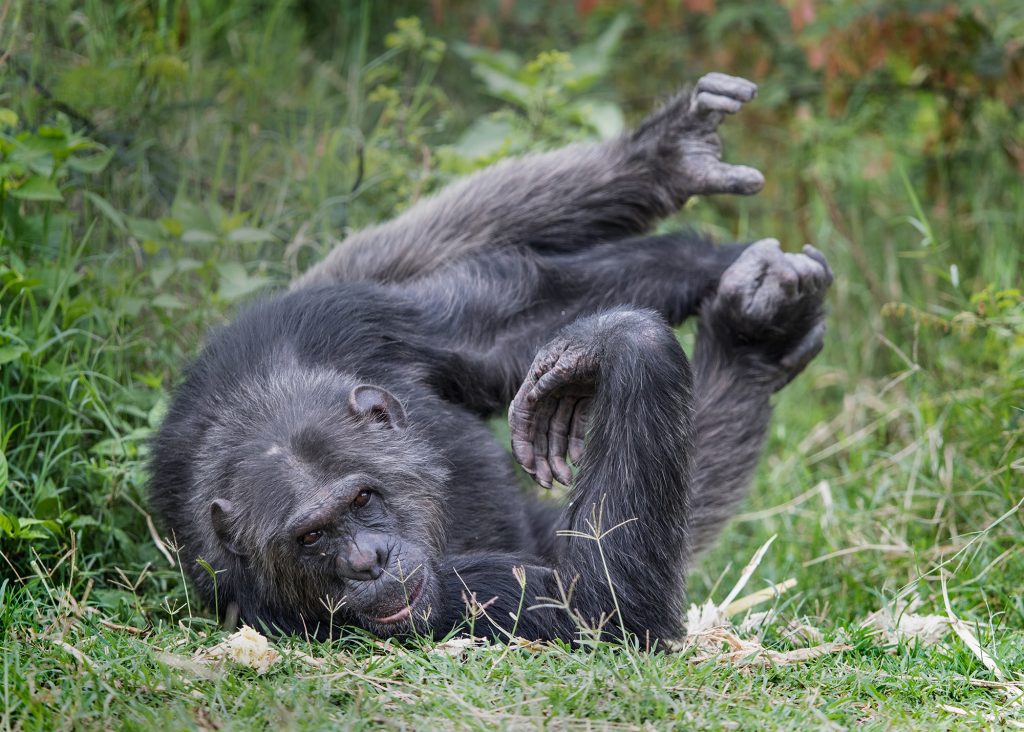
A wild chimpanzee © georgelogan.co.uk
LOCATION: Dja Biosphere Reserve, East Region, Cameroon. A two million hectare (4.9m acre) forested area, comprising forestry management units, community forests, and ~40 villages (~50,000 people). The core 526,000 hectare (1.2m acre) Dja Faunal Reserve is a UNESCO World Heritage Site (1981).
There is widespread bushmeat hunting for local consumption and sale, poaching for the illegal wildlife trade, and forest overuse and degradation which further threatens chimpanzees and gorillas.
The DBR is home to central chimpanzees (officially Endangered on the IUCN Red List), western lowland gorillas (Critically Endangered), forest elephants (Critically Endangered), three pangolin species (Vulnerable), plus leopards, buffalo, bongo, many primate and ungulate species, reptiles and birds.
It is also home to rural communities of Badjoue and Bantu, classed as ‘poor’ and ‘extreme poor’, whose traditional livelihoods include hunting and slash-and-burn farming. The northeast corner of reserve, where there are 11 villages (~3,000 people), is one of a few key areas recently recognised as warranting extra protection. This is because there is a high great ape abundance and human activity is not as intense as in other places.
Our activities will initially focus in the villages Malen V, Doumo Pierre, Mimpala, Eschou, Madjuh I, and Doumo Mama. Some of our outreach activities will extend to an additional five villages.
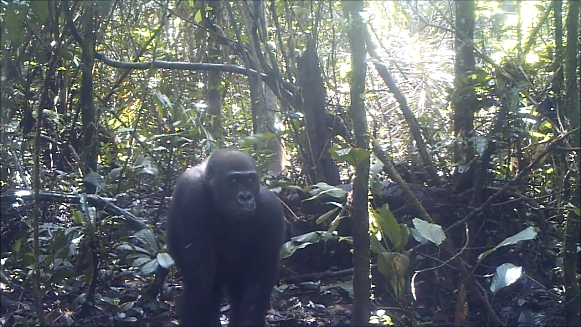
A photo taken by one of our camera traps in DBR
BORN FREE’S GUARDIANS OF DJA PROGRAMME HAS FOUR MAIN OBJECTIVES


To provide school and community outreach to increase awareness and acceptance of wildlife and conservation

To support anti-poaching activities and to reduce illegal pressures on wildlife

To work with families and schools to plant trees on abandoned crop fields and plantations to reforest the buffer zone of the reserve
Read more about our vital work to achieve these objectives
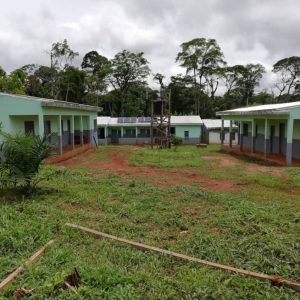
A ‘Centre de Formation Agricole’ (Agroforestry Training Centre)
SKILLS TRAINING
Via an existing ‘Centre de Formation Agricole’ (CFA) (Agroforestry Training Centre), we will support staff to deliver three-year training courses in sustainable agroforestry (combining agriculture with trees) practices for female and male (12-25 years old) primary school graduates. We will also offer shorter one-year courses to help existing cocoa farmers (25+ years old) build the skills to manage and rehabilitate their farms.
As well as the training, we will provide the equipment and materials for set-up for 15 graduates per year.
This provides young people with an education and, once they graduate, the material and technical support they need to start a livelihood that will reduce pressure on wildlife.
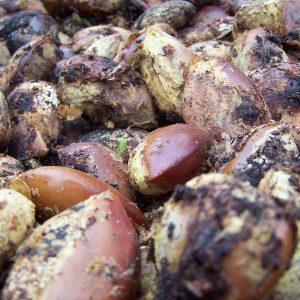
©APGS
INCOME GENERATION
As cocoa can take several years to yield, and because it can only be offered to a limited number of graduates per year, we will offer the wider community the opportunity to cultivate pepper (Capsicum annum). This can be cultivated chemical-free, on village fallows to limit deforestation. It also matures within one year, and sells well. We will provide for set up for up to 1,000 people per year.
An alternative short term income-generating activity is tailoring, which several village girls have expressed an interest.
To ensure the long-term sustainability of all these ventures, we will also help villages to establish trade and market routes for produce, via organisational reinforcement (such as co-operatives), and by identifying buyers and providing technical support for group sales.
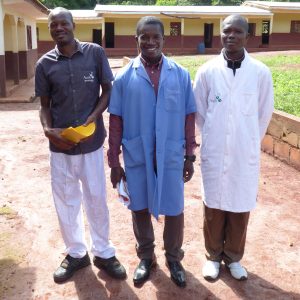
Teachers at the ‘gorilla school’ ©APGS
PRIMARY EDUCATION
There is a new primary school in the communities, called the Ecole Jean-Michel Vichard primary school (EJMV), or ‘gorilla school’, which takes 100 pupils per year (five to 14 years). We will provide materials for environmental parts of the curriculum and deliver bespoke sessions in the forest, including botany and practical sessions.
We will work with the teachers to set up a points system for environmentally aware/active students, with the annual opportunity to ‘win’ a trek into the reserve.
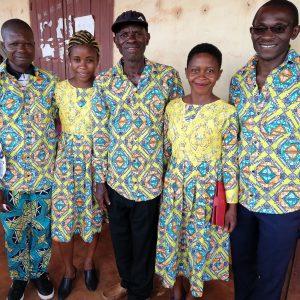
Members of the local community © APGS
COMMUNITY OUTREACH
As well as educating through the gorilla school, we will also hold regular events and sessions within the community. Events for youth will include movies, shows, competitions, football, and debates. Events for adults will include films, evening talks, and opportunities for basic education courses (eg literacy, bookkeeping, etc). Via this community outreach, we can expand into more neighbouring villages and can reach up to 3,000 rural people.
We will work with the main sponsors of the gorilla school and the Agroforestry Training Centre to seek sponsorship of a partner to support both schools’ sustainability plans.
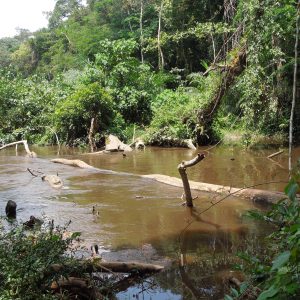
The Mpou river ©APGS
SENSITISATION OF WILDLIFE LAW
To encourage and empower local people to embrace the alternatives and support we will be offering and to commit to reducing their pressures on natural resources, and adhering to wildlife laws, we will encourage individuals to sign up to ‘Reciprocal Environmental Agreements’ (we expect about 40 REAs signed per year).
This will also encourage and improve links between villages and the newly appointed ‘Chef d’Antenne’ in Somalomo, for information transfer.
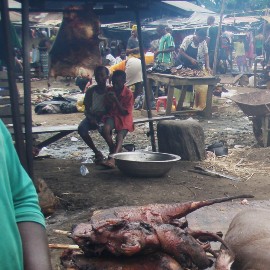
The cooking of bushmeat
SUPPORT FOR SERVICES OF CONSERVATION OF DBR
While the above actions will help many people in the community to change their ways of life and improve their prospects, such voluntary support is never taken up by all.
To protect great apes and other wildlife, we intend to provide support for two (or more) anti-poaching patrols per year across the landscape (including gun amnesties; bushmeat confiscation, etc) in collaboration with the Services of Conservation of the DBR.
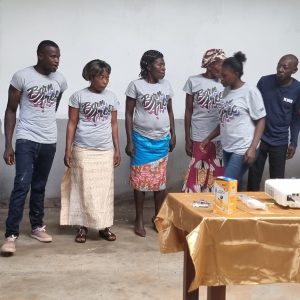
Great Ape Guardians © APGS
GREAT APE GUARDIANS
Playing another key role in the enforcement of wildlife law, we will recruit, sensitise, and equip 10 male and female ‘Great Ape Guardians’. These will be local people who can patrol, gather information, sensitise others, and act as a facilitator between Born Free and the communities.
Via the Guardians, we can equip and support an informer network, to work together with the local authorities, for rapid information exchange on poaching events.
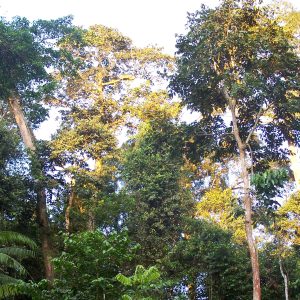
The Dja rainforest
©APGS
REFORESTATION
We will engage local farmers via two workshops per year, to help us identify and acquire 60 hectares of abandoned fields and plantations per year.
Together with farming families and school groups, we will set up seven nurseries over the course of three years, to produce enough seedlings of native and food crop trees to reforest this land to improve habitat integrity and connectivity, and to pro-actively respond to the challenges of climate change.
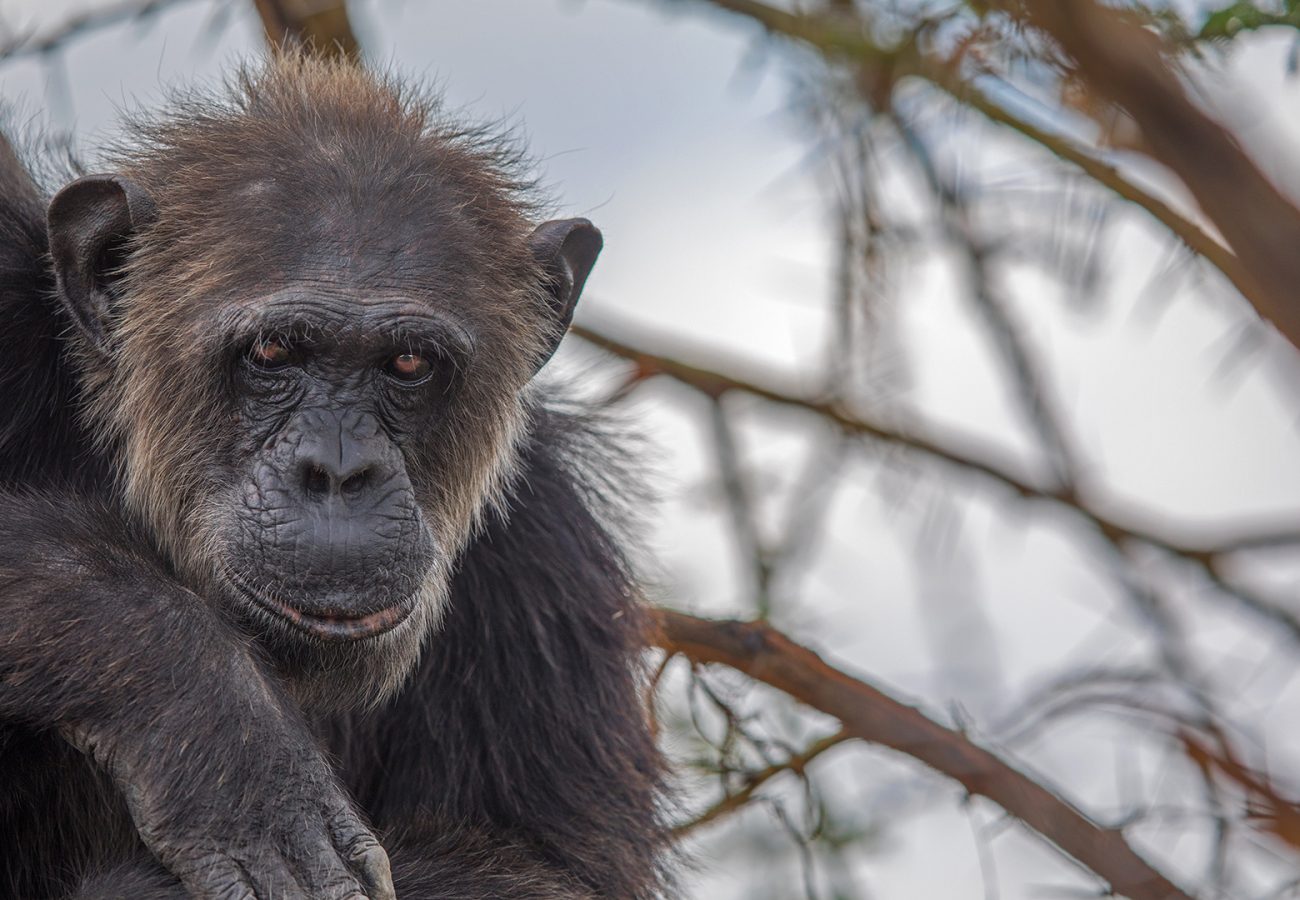
Protect Chimpanzees & Gorillas
You can support our work to protect wild chimpanzees and gorillas in Dja by donating today.
